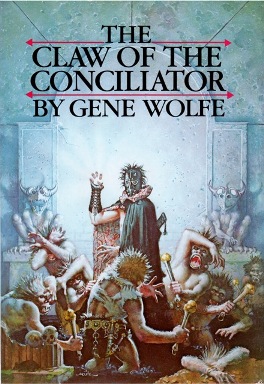Some thought inspired from watching the Ender's Game movie trailer...
I'm a long time fan of science fiction literature. I remember when I first discovered the SF section of the public library. I could have set up a tent and lived there.
But one thing I've learned in time is that SF literature is a very different beast from SF movies. For a SF movie to be popular it has to follow the the Star Wars mold: plucky humans fighting against tyranny. Blah. I mean, it's okay ever once and a while, but even the new Star Trek movies -- the original series, for all its campiness, being the closest to the feel and style of literary SF that has even been broadcast on TV -- has become more like Star Wars.
In order to get an idea of how different literary SF is from movie SF peruse these following links. These are all the Hugo and Nebula award winners for best novel. (The Hugo and Nebula, if you didn't know, are to SF literature what the Academy Awards are to movies.)
http://en.wikipedia.org/wiki/Nebula_award_for_best_novel
http://en.wikipedia.org/wiki/Hugo_Award_for_Best_Novel
Do you recognize any of the titles? Care to guess how many have been made into movies? Here's my quick count in case you don't have the time.
By my count here are the winners that have been made into movies:
- Dune (Nebula award winner)
- Flowers for Algernon (Nebula award winner)
- Harry Potter and the Goblet of Fire (Hugo award winner and biggest sellout ever)
- Starship Troopers (Hugo award winner)
- The Lion, the Witch and the Wardrobe (Retroactive Hugo award winner)
- Fahrenheit 451 (Retroactive Hugo award winner)
If we include nominees we can add the following novels to the list:
- Do Androids Dream of Electric Sleep? (the movie was called Blade Runner)
- Slaughter House 5
- The Postman
- The Handmaid's Tales
- A Game of Thrones
- A Clash of Kings
- Cloud Atlas
- Children of Dune
- 2010: Odyssey Two
And that's it. They've been handing Hugos out yearly since 1958 and Nebulas have been awarded since 1965. If you only include those movies that were actually popular or even critically acclaimed the list gets much shorter.
The problem gets compounded when you realize some of the worst movies on this list are nothing like the books they were based on in either tone or content. Not only are those SF movies based on great SF literature bad, they mislead the viewer concerning what SF literature is actually like. Who on earth would want to read any of David Brin's work after seeing such a miserable movie as The Postman. Not only is
The Postman novel great, but Brin's
Startide Rising is one of the greatest SF novels of all time (and it will even appeal to those of you who like your SF in the Star Wars fashion).
For those of you not familiar with SF literature here's a few recommendations to get a feel for the genre. These books can be found on the list of award winners and nominees linked to earlier.
- Have Spacesuit -- Will Travel
- Dune
- Lord of Light
- Ring World
- Rendezvous With Rama
- Neuromancer
- Startide Rising
- Ender's Game
- Red Mars
- The Diamond Age
And while I'm at it, here's an exhaustive list of movies I have watched that do the best job at capturing the feel of SF literature:
- 2001: A Space Odyssey
- Alien
- Bladerunner
- Primer
- The Fountain
There are some other good SF movie, after all Star Wars is a great flick, but they don't come close to capturing the style found in SF literature.
So, back to the Ender's Game movie. I'm very concerned that the movie will be reduced to Hollywood pablum. The story is disturbing and the ending is painful. I can't imagine Hollywood being willing to do it straight. I also heard they mixed in some of
Ender's Shadow into the movie which changes the tone significantly (and not in a good way in my opinion). I'll watch it, but with trepidation.



